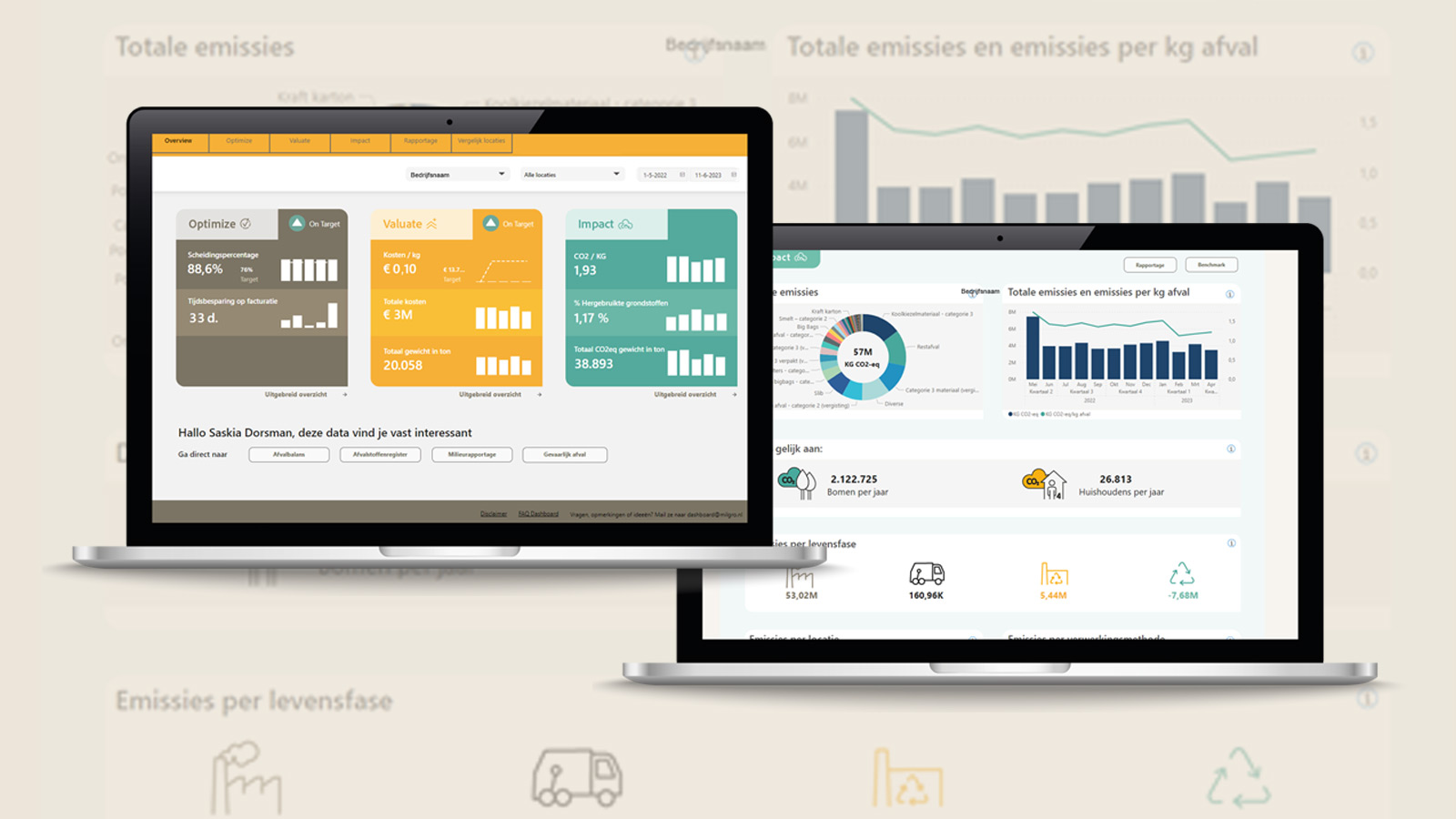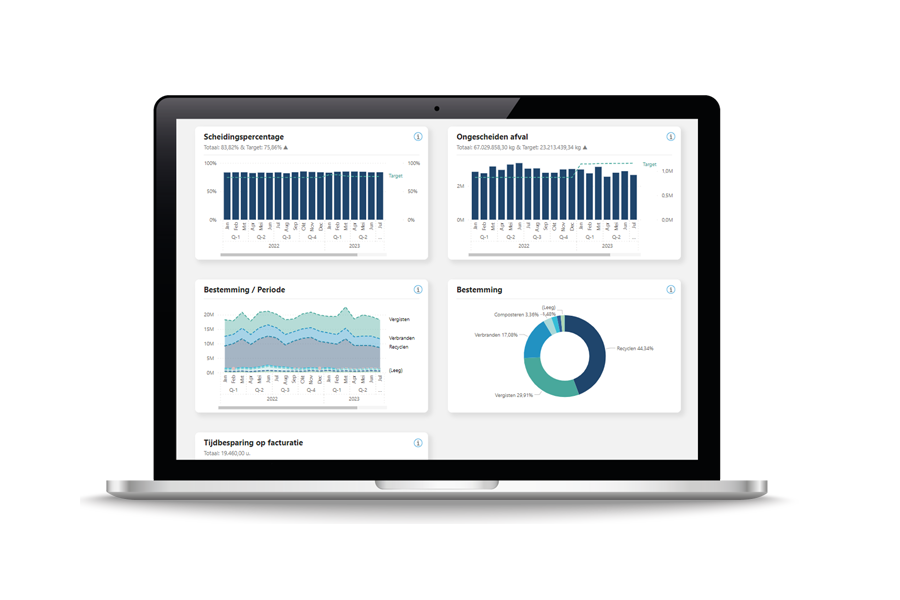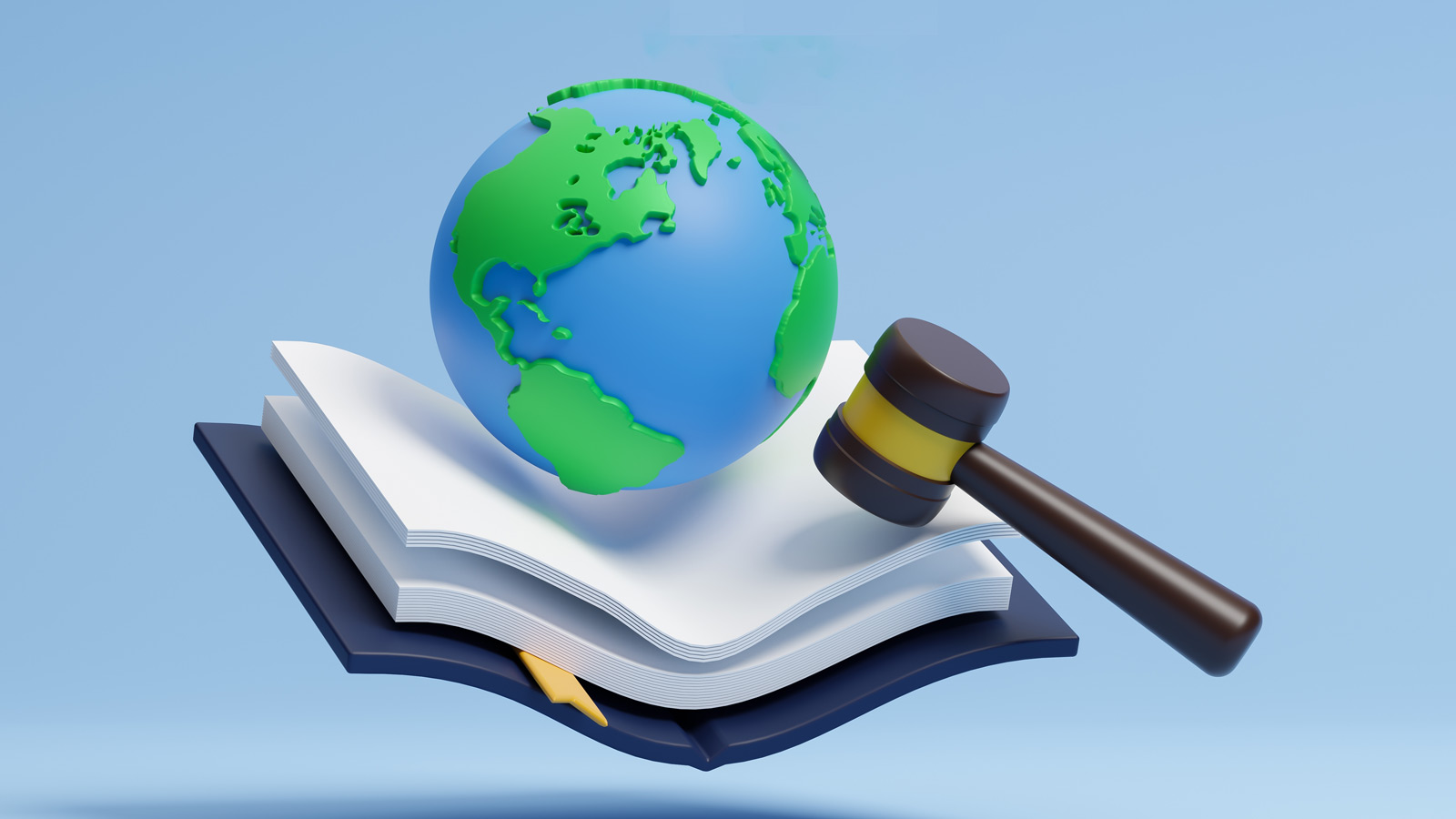We consume far more resources worldwide than the earth can produce. Earth Overshoot Day is taking place earlier and earlier in the year. The importance of a circular economy is greater than ever. With the EPR, or Extended Producer Responsibility, the government encourages companies to use raw materials more sustainably.
Who does the EPR apply to and what are the implications of this legislation? You can read about that here. In this article, we explain the importance of waste management in relation to the EPR. We also show how Milgro can support your company in optimal waste separation.
What is EPR?
The EPR makes producers financially and organizationally responsible for managing waste streams created when products enter commerce. The Dutch government places this Extended Producer Responsibility on whoever first puts a product on the Dutch market. This therefore concerns not only manufacturers, but also importers, distributors and waste processors.
In concrete terms, this means that the government makes companies responsible for the waste management of their products. This involves the total life cycle of a product. From production phase and use to when the product reaches the end of its life.
Many European countries have incorporated the EPR principle into laws and regulations on sustainable waste management. The most recent additions to Dutch EPR legislation are litter (Jan. 1, 2023) and textiles (July 1, 2023). Currently, the EPR applies to six different product groups:
- Car tires and cars
- Batteries and accumulators
- Electrical equipment
- Textiles
- Packaging
- Litter
Purpose of Extended Producer Responsibility (EPR).
The purpose of the EPR is to encourage producers to:
- Use sustainable materials
- Promote recycling
- Be more conscious of the end-of-life of products
Awareness of the ecological impact of production and waste management has led to a global movement toward EPR. It forces producers to think about the full life cycle of their products. In doing so, EPR encourages a shift toward more sustainable production processes and a reduction in environmental impact. Countries around the world are embracing this approach to work together for a more sustainable future.
Impact of EPR on businesses
Thanks to the EPR, producing and purchasing companies are responsible for collecting, recycling and preventing (litter) waste. This forces companies to think about more sustainable product design and use of environmentally friendly materials. Innovations in packaging and waste treatment technologies are also encouraged.
The most tangible consequence of Extended Producer Responsibility is that companies must actively consider their waste management. Collecting and recycling end-of-life products requires efficient systems and close cooperation with waste collectors.
At the same time, those waste collectors must think about efficient solutions for collecting and recycling waste. The quality and separation of collected waste determines whether high-quality recycling of materials such as plastics is successful. Creating alternatives to single use plastics (SUP) therefore requires even better cooperation between producers and recyclers.
Read also

Why single use plastics are banned
Understanding waste streams determines your EPR success
The EPR is all about encouraging recycling and reducing (litter) waste. Therefore, understanding waste streams is essential for any business. Only when you fully understand the waste released in your business processes can you think about improving those processes.
Companies need to understand what is released in the production process and waste management. This understanding helps reduce wasted resources and identifies opportunities for improved waste segregation. Without this understanding, it is impossible to develop a strategy aimed at optimal waste management.
Milgro: partner in optimal waste separation
Milgro provides expert support for EPR challenges. We excel in sustainable waste management. For example, we provide insight into your company's various waste streams and processing methods in the Milgro dashboard. This helps you achieve a better separation rate. Thanks to our extensive network of processors, we ensure the most sustainable processing of all your waste streams.
Getting started with EPR? Get in touch
EPR is not just a policy measure. Extended Producer Responsibility is a paradigm shift toward more sustainable and responsible business practices. It places responsibility for waste management directly on producers and encourages them to take active steps to become more sustainable.
Through legislation, EPR becomes a powerful tool to encourage businesses to innovate, promote recycling and pave the way to a circular economy.
Stay informed
Stay up to date on all new developments? Follow us on LinkedIn or Instagram. Or subscribe to the newsletter. Are you curious about what Milgro can do for your operations and waste process? Contact us














